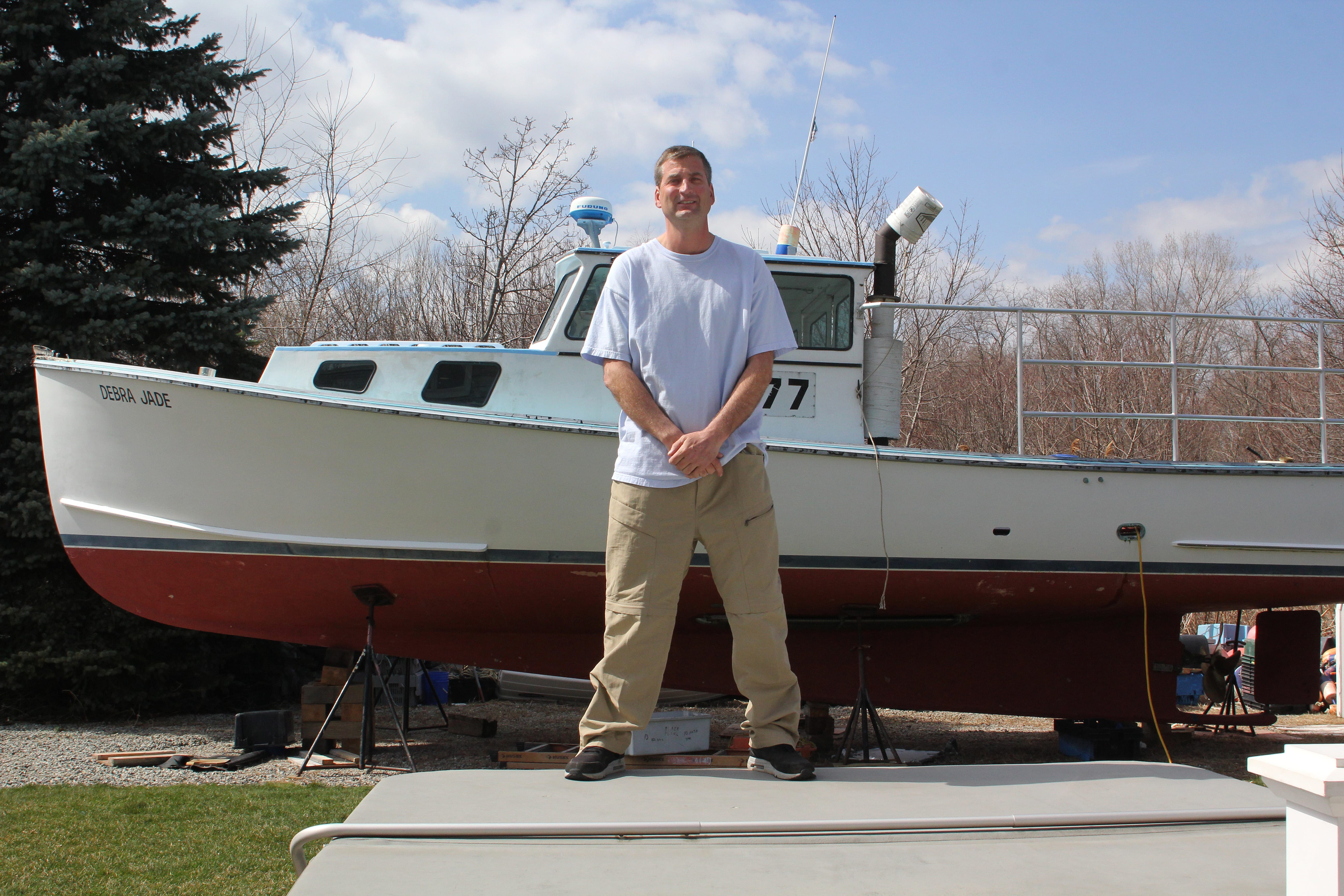NAHANT — A Nahant lobsterman is fishing for a seat on the Board of Selectmen.
Justin Mahoney, 43, has launched a write-in sticker campaign against incumbent Enzo Barile, who has maintained a seat on the board for three years.
Over the past few months, Mahoney has found himself more involved in issues plaguing the town, and said the time feels right to take it a step further and run for office.
“It’s more about the future,” said Mahoney. “A future generation of leadership. I would like to work with and learn from the other two seasoned selectmen. I would want (residents who don’t know me) to know they could come to me with their questions and concerns. If I don’t have the answer, I will go to the people who do and come back with it.”
In January, Mahoney spoke out when the state Division of Marine Fisheries considered allowing sea scallop dredging off the coast of Nahant where it is currently prohibited.
Scallop harvesting is done through dredging, which Mahoney and others said would disrupt the sea floor and any life on the bottom. Ultimately, the state chose not to launch the pilot program.
Mahoney and his wife Kate are both fourth-generation Nahanters.
During the winter storms in January, Mahoney said the seawater rose higher in his backyard than he had seen before. He doesn’t remember conditions in Nahant being as bad since the perfect storm (on Oct. 30, 1991).
If elected, he plans to focus his efforts on finding solutions to the town’s drainage and sewer problems by working with people in town and agencies such as the Federal Emergency Management Agency and Massachusetts Emergency Management Agency.
“The problem is not water coming in, it’s getting the water out,” he said.
Mahoney was a founding member of Keep Nahant Wild, an organization against the expansion of the Northeastern University Marine Science Center. He believes the proposed 60,000-square-foot building is too large for the tiny town and worries about the effects of a seawater intake increase.
The university withdrew its proposal for the project in February, but the plan included a five-fold increase to the amount of water collected and deposited back into the ocean.
Mahoney, a second-generation commercial fisherman who has fished for lobster around Nahant for more than 30 years, said the existing system has already had an impact. He would like to see the university conduct a thermal plume to track the warm water.
“As the university has increased the current system in the last 10 years, the lobsters and fish have moved away from this area,” he said in a letter to the Massachusetts Environmental Policy Act office.
Barile, the current chair of the board and a small business owner, said he is working to resolve the conflict with Northeastern.
“So far, we haven’t seen any plans put forth by Northeastern to see exactly what their intentions are, but it is my belief that we should always talk things through, even if we object to it in its entirety,” he said. “I want everyone to know I believe in the capacity of goodness and I firmly believe removing ourselves from the table is a big mistake.”
His decision to run for his first term was fueled by discrepancies with the town’s flood maps that were causing many residents to overpay for flood insurance. Some faced bills of more than $11,000, he said.
The maps were completed in 2012 and rezoned two years later, changing the elevations and adding at least 50 houses to the flood zone. Barile believed the maps were incorrect and failed to accurately represent the flood risk for the different areas.
He pushed to revise the maps, which removed some homeowners from flood zones while others were moved into different flood categories, which saved them money.
Barile also advocated for the town’s involvement in the National Flood Insurance Program’s Community Rating System, a voluntary program that encourages and offers community floodplain management activities that exceed certain requirements.
Barile wants to be re-elected to continue working on the town’s Green Community designation, which would provide state funding for reducing energy use and costs, and to seek involvement in the state Municipal Vulnerability Preparedness program.
The program provides support for cities and town to begin the process of planning for climate change resiliency.
“It’s all about the sea level rising,” said Barile. “We have to do certain projects to remediate the ocean levels coming up. We just got clobbered with those storms in January.”
He would also like to see the 12 Coast Guard Housing units on Castle and Gardner roads sold individually or as separate lots.The four-acre parcel of land contains town-owned structures that date back to World War II when they were used to house soldiers who worked at a nearby bunker.
Nahant has owned the Coast Guard housing property since the late 1950s. Today, the homes are leased to tenants.
“As a selectman, it is my job to protect the town and work in its best interest,” said Barile. “That was my sentiment three years ago when I ran and it is the same sentiment today.”

